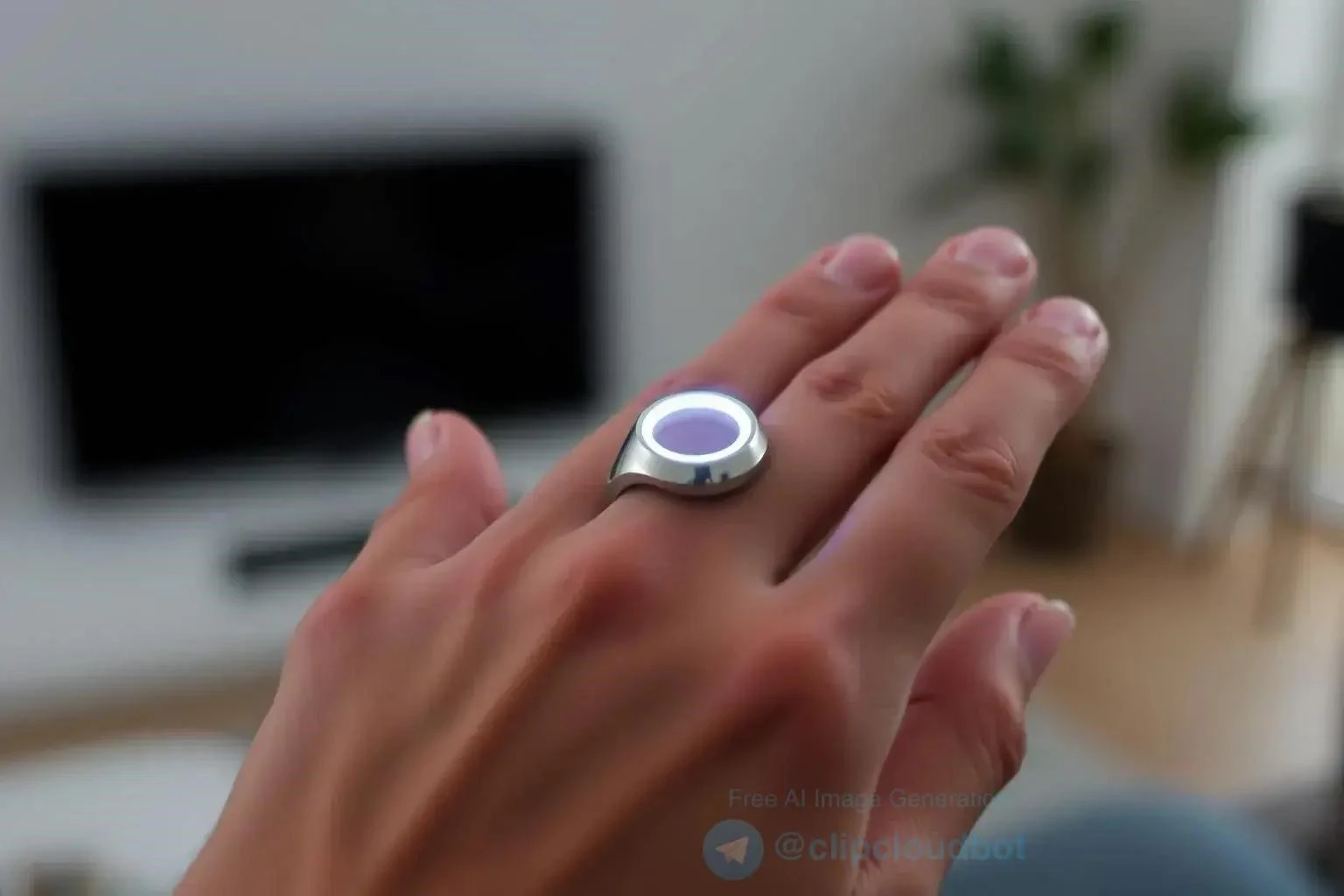Wearable Tech: Predicting Illness and Optimizing Health
Wearable technology is revolutionizing healthcare by shifting from reactive to predictive models. Smartwatches and fitness trackers now monitor vital signs, activity levels, and even sleep patterns, providing valuable data. This data, analyzed with powerful algorithms, can detect subtle changes indicative of potential health issues before they become serious. Early detection empowers individuals to make proactive lifestyle changes or seek timely medical intervention, optimizing their health and well-being.
The Rise of Predictive Health Monitoring with Wearables
The healthcare landscape is undergoing a dramatic transformation, moving away from traditional reactive approaches towards proactive, personalized care. At the heart of this revolution lies the rise of predictive health monitoring with wearables; These increasingly sophisticated devices, from smartwatches and fitness trackers to smart rings and specialized sensors, are empowering individuals to take control of their health like never before. They offer continuous monitoring of vital signs, activity levels, sleep patterns, and even more nuanced biometric data, providing a wealth of information that can be leveraged to predict potential health issues before they manifest.
The power of predictive health monitoring lies in its ability to identify subtle changes in an individual’s baseline health metrics. Advanced algorithms analyze the collected data, looking for patterns and anomalies that might indicate the early stages of an illness or a developing health condition. For example, changes in heart rate variability, sleep duration, or even skin temperature could be early warning signs of infections, cardiovascular problems, or even mental health issues. By detecting these subtle shifts, wearables can alert users and their healthcare providers, enabling timely interventions that can prevent serious health complications.
Furthermore, the continuous data stream generated by wearables provides a comprehensive picture of an individual’s overall health. This longitudinal data allows for personalized insights and recommendations, tailored to the specific needs and health risks of each user. Instead of relying on sporadic check-ups and reactive treatments, individuals can now proactively manage their health with data-driven insights. Wearables can offer personalized recommendations for exercise, nutrition, and stress management, empowering users to make positive lifestyle changes that optimize their well-being.
The integration of artificial intelligence and machine learning further enhances the predictive capabilities of these devices. As algorithms become more sophisticated, they can more accurately identify complex patterns and predict potential health issues with greater precision. This opens up exciting possibilities for early diagnosis and personalized interventions, leading to more effective and efficient healthcare delivery.
The rise of predictive health monitoring with wearables is not just about preventing illness; it’s about empowering individuals to take control of their health journey. By providing real-time feedback and personalized insights, wearables are transforming the way we approach healthcare, paving the way for a future where proactive and preventative care becomes the norm.
Smart Rings and Advanced Fitness Trackers: Unlocking Deeper Health Insights
Wearable technology is constantly evolving, pushing the boundaries of what’s possible in health monitoring. Smart rings and advanced fitness trackers represent the cutting edge of this evolution, offering increasingly sophisticated tools for unlocking deeper health insights. These devices go beyond basic step counting and calorie tracking, delving into more nuanced biometric data to provide a comprehensive understanding of an individual’s well-being.
Smart rings, in particular, are emerging as powerful health monitoring tools. Their discreet design and continuous contact with the skin allow for accurate and consistent tracking of various physiological parameters. These rings can monitor heart rate, heart rate variability, sleep stages, oxygen saturation, and even body temperature fluctuations. This continuous stream of data provides valuable insights into sleep quality, stress levels, and overall cardiovascular health. Some smart rings even have the capability to detect early signs of illness by identifying subtle changes in these metrics.
Advanced fitness trackers are also stepping up their game, incorporating more sophisticated sensors and algorithms. Beyond traditional activity tracking, these devices now offer features like electrocardiogram (ECG) monitoring, blood oxygen saturation measurements, and even stress level detection. They can provide detailed analyses of workout performance, recovery metrics, and sleep patterns, empowering users to optimize their training regimens and improve their overall fitness levels.
The combination of continuous monitoring and advanced data analysis makes these wearables invaluable tools for proactive health management. By tracking trends and identifying deviations from baseline metrics, they can alert users to potential health issues before they escalate. For example, changes in heart rate variability or sleep patterns could be early indicators of stress, illness, or even underlying health conditions. This early detection empowers individuals to take proactive steps, such as adjusting their lifestyle, seeking medical advice, or implementing preventative measures.
Moreover, the data collected by these devices can be shared with healthcare providers, providing them with a more complete picture of a patient’s health. This can lead to more informed diagnoses, personalized treatment plans, and better overall patient care. The ability to track and analyze long-term health trends also allows for more effective monitoring of chronic conditions and the assessment of treatment efficacy.
Smart rings and advanced fitness trackers are not just gadgets; they are powerful tools that are transforming the way we approach health and wellness. By providing deeper insights into our bodies and empowering us to take proactive control of our health, these devices are paving the way for a future of personalized and preventative healthcare.
Biometric Performance Optimization through Wearable Technology
Wearable technology is no longer just about tracking steps and calories; it’s becoming an essential tool for optimizing biometric performance across a range of activities, from professional athletics to everyday life. By providing real-time feedback and in-depth analysis of physiological data, wearables empower individuals to understand their bodies better and achieve peak performance.
Athletes are increasingly relying on wearables to gain a competitive edge. Smartwatches and specialized sensors can track metrics like heart rate variability, oxygen saturation, and lactate threshold, providing valuable insights into training intensity, recovery status, and overall performance. This data allows athletes to fine-tune their training regimens, optimize recovery strategies, and prevent overtraining, ultimately leading to improved performance and reduced risk of injury.
Beyond professional sports, wearables are also playing a crucial role in optimizing performance in everyday life. Fitness trackers and smartwatches can monitor sleep quality, stress levels, and activity patterns, providing personalized insights into factors that impact energy levels, cognitive function, and overall well-being. By understanding how these factors interact, individuals can make informed decisions about their daily routines, optimizing their sleep schedules, managing stress effectively, and improving their overall productivity.
The ability to track and analyze biometric data over time allows for personalized performance optimization strategies. Wearables can identify individual strengths and weaknesses, providing targeted recommendations for improvement. For example, a wearable might suggest adjusting workout intensity based on heart rate data, or recommend mindfulness exercises based on stress level readings. This personalized feedback empowers individuals to tailor their training and lifestyle choices to achieve their specific performance goals.
Furthermore, the integration of artificial intelligence and machine learning is enhancing the analytical capabilities of wearables. Advanced algorithms can analyze complex biometric data, identifying patterns and correlations that might not be readily apparent. This can lead to more precise performance predictions, personalized training recommendations, and even early detection of potential performance plateaus or overtraining risks.
Biometric performance optimization through wearable technology is not just about achieving peak physical performance; it’s about enhancing overall well-being and maximizing human potential. By providing personalized insights and data-driven feedback, wearables are empowering individuals to understand their bodies better and optimize their performance in all aspects of life. From professional athletes to everyday individuals seeking to improve their health and well-being, wearables are transforming the way we approach performance optimization.
The Future of Health Tech: Personalized and Proactive Care
The future of health tech is rapidly unfolding, driven by the convergence of powerful technologies like artificial intelligence, machine learning, and increasingly sophisticated wearable devices. This convergence is paving the way for a paradigm shift in healthcare, moving away from reactive treatments towards personalized and proactive care. Wearables are at the forefront of this transformation, empowering individuals to take control of their health and well-being like never before.
One of the most promising aspects of this future is the potential for truly personalized medicine. Wearables can collect vast amounts of individual health data, including vital signs, activity levels, sleep patterns, and even genetic information. This data, combined with advanced analytics, can be used to create personalized health profiles and tailor treatments to the specific needs of each individual. Imagine receiving medication dosages optimized for your unique genetic makeup or receiving personalized exercise recommendations based on your real-time biometric data. This is the promise of personalized medicine, and wearables are making it a reality.
Proactive care is another key pillar of the future of health tech. Wearables can continuously monitor an individual’s health, detecting subtle changes that might indicate the early stages of a disease or condition. This early detection allows for timely interventions, preventing serious health complications and improving long-term outcomes. Imagine a wearable that detects early signs of a heart attack or stroke, alerting both the individual and their healthcare provider, enabling swift action that could save lives. This is the power of proactive care, and wearables are making it possible.
The integration of wearables with telehealth platforms is further expanding access to healthcare services. Remote monitoring through wearables allows healthcare providers to track patients’ health remotely, providing virtual consultations and interventions when needed. This is particularly beneficial for individuals living in remote areas or those with limited access to traditional healthcare facilities. Wearables are bridging the gap in healthcare access, making quality care more accessible and convenient.
As wearable technology continues to evolve, we can expect even more sophisticated health monitoring capabilities. Imagine wearables that can non-invasively monitor blood glucose levels, detect early signs of cancer, or even predict the onset of mental health episodes. These advancements hold immense potential for improving health outcomes and transforming the way we manage our health.
The future of health tech is bright, and wearables are playing a pivotal role in shaping this future. By empowering individuals with personalized insights and enabling proactive care, wearables are revolutionizing the healthcare landscape, paving the way for a healthier and more connected future.






